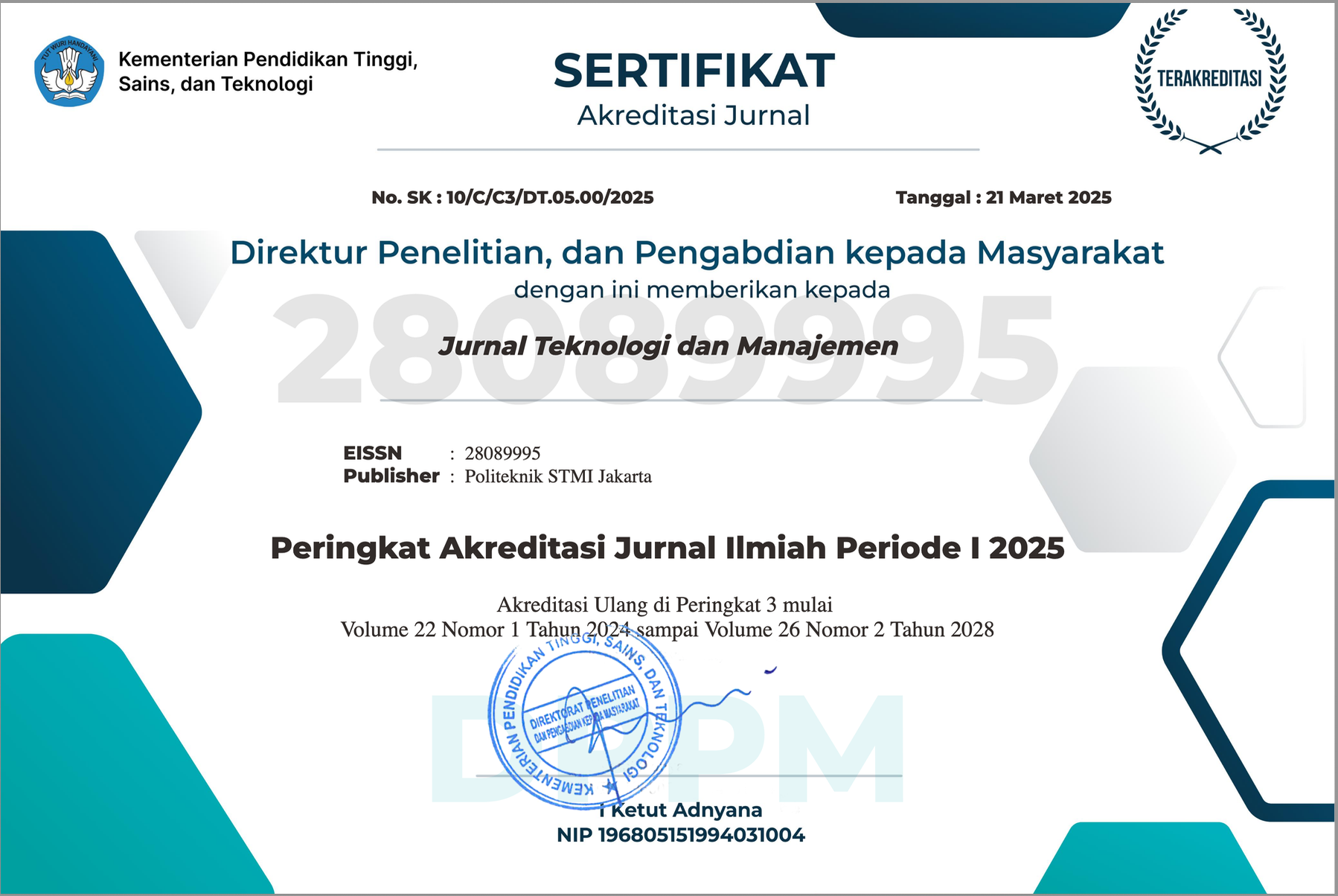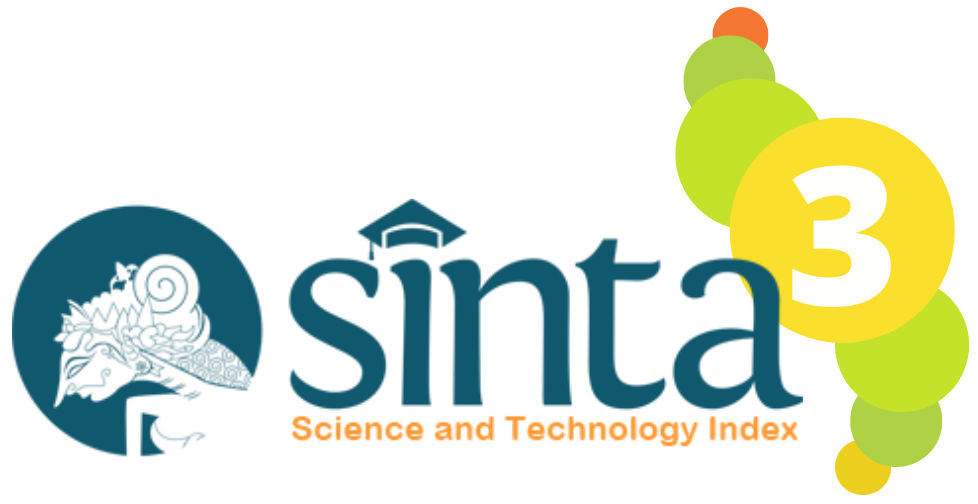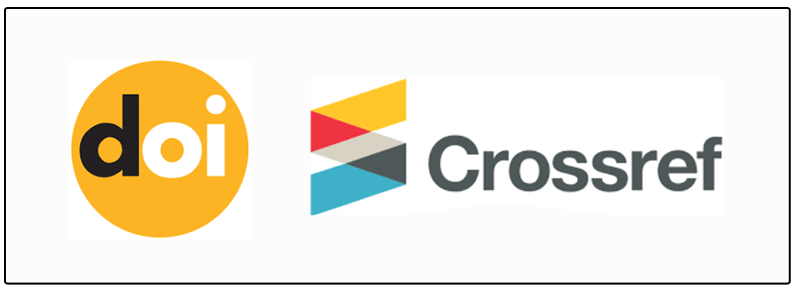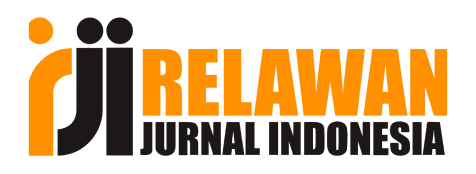Coronanomics: Implications of COVID-19 Pandemic in The Economy in Indonesia
DOI:
https://doi.org/10.52330/jtm.v22i2.255Keywords:
Coronanomics, Covid-19 pandemic, macroeconomics, government policyAbstract
Coronanomics is the impact of the Covid-19 pandemic on the economy. The purpose of this study is to analyze the impact of the Covid-19 pandemic on the macro economy which includes several macro indicators, namely data on economic growth, inflation rates, interest rates, consumption, and investment in Indonesia as well as government policy responses in overcoming the Covid-19 pandemic. This study uses a literature study by taking data from several literatures that support the research process. This study uses quantitative data that is described qualitatively to analyze the impact on the macro economy. Data collection techniques used by listening and analyzing data by means of data reduction, data display, and an overview about the literature to be developed in this study. The results showed that the Indonesian economy in the third quarter of 2021 increased by 3.51% (yoy), although it slowed down compared to the previous quarter's achievements, household consumption grew by 1.03% (yoy). Investment growth slowed by 3.74% (yoy), supported by construction investment. The government's consumption performance was 0.66% (yoy), in line with the reallocation of spending to accelerate the national economic recovery program, including the handling of the Covid-19 delta. The inflation rate in October 2021 was 0.93%, a decrease compared to inflation in 2020 of 1.66%. The government's policy responses that have been carried out in order to overcome the Covid-19 pandemic are divided into two, namely through the Covid-19 Handling Policy and the National Economic Recovery Policy (PC-PEN).
References
Asian Development Bank (ADB). (2022). Asian Development Outlook 2022. ISSN 0117-0481 (print), 1996-725X (electronic).Publication Stock No. FLS210163-3.
http://dx.doi.org/10.22617/FLS210163-3
Baldwin, R. and di Mauro, BW (eds). (2020). Economics in the Time of COVID-19. London: A VoxEU.org Book, Center for Economic Policy Research, https://voxeu.org/system/files/epublication/COVID-19.pdf
Bank Indonesia. (2021). Annual Report 2021.
Bank Negara Malaysia. (2021). Economic and Financial Developments in Malaysia in the Fourth Quarter of 2021.
Bank of Thailand. (2021). Annual Economic Report 2021.
Barua, Suborna. (2020). Understanding Coronanomics: The economic implications of the coronavirus (COVID-19) pandemic. https://ssrn.com/abstract=3566477
Beck, T. (2020). Finance in the times of coronavirus. London: A VoxEU.org Book, Center for Economic Policy Research. https://voxeu.org/system/files/epublication/COVID-19.pdf
BPS (Statistics Indonesia). (2021). Economic Growth of Indonesia 2020. https://www.bps.go.id/en/pressrelease
Cecchetti, SG and Schoenholtz, KL (2020). Contagion: Bank runs and COVID-19. London: A VoxEU.org Book, Center for Economic Policy Research. https://voxeu.org/system/files/epublication/COVID-19.pdf
Chen, L., & Hong, J. (2020). Coronavirus hits China's workers as businesses say they can't pay wages now. Fortune. https://fortune.com/2020/02/19/coronavirus-china-workers-businesses-pay-wages/
Eichengreen, B. (2020). Coronanomics 101: which policy tools will contain the economic threat of COVID-19?. World Economic Forum. https://www.weforum.org/agenda/2020/03/coronavirus-economics/
European Commission. (2021). Next Generation EU.
Fahrika, AI & Roy J. (2020). Dampak pandemi covid 19 terhadap perkembangan makro ekonomi di Indonesia dan respon kebijakan yang ditempuh. Jurnal Inovasi, 16(2), 206–213. https://www.researchgate.net/publication/346082387
Helen, Sri Mintarti, Fitriadi. 2017. The Effect of Investment and Labor and Government Expenditure on Economic Growth and Employment Opportunities. INNOVATION Journal. Vol 13 No 1 of 2017. http://dx.doi.org/10.54204/TAJI/Vol81202301
International Monetary Fund (IMF). (2021). World Economic Outlook 2021.
Khairani Siregar, (2009), Analysis of Consumption Determinants of Indonesian Society, Medan, Postgraduate School, University of North Sumatra
Mann, CL (2020). Real and financial lenses to assess the economic consequences of COVID-19. London: A VoxEU.org Book, Center for Economic Policy Research. https://voxeu.org/system/files/epublication/COVID-19-1919.pdf
Fitzpatrick, M., Gill, I., Libarikian, A., Smaje, K., and Zemmel, R. (2021). The digital-led recovery from COVID-19: Five questions for CEOs. https://www.mckinsey.com/the-digital-led-recovery-from-covid-19-five-questions-for-ceos#/
Ministry of Finance, Indonesia. (2020). State Budget Realization Report. https://www.djppr.kemenkeu.go.id/en/home
Petro, G. (2020, March 20). The Coronavirus Tsunami: What's To Come For US Retail. Forbes.https://www.forbes.com/sites/gregpetro/2020/03/20/the-coronavirus-tsunamiwhats-to-come-for-us-retail/#128e4da6609d
Reserve Bank of India. (2021). Annual Report 2020-21. https://www.rbi.org.in/Scripts/AnnualReportPublications.aspx?year=2024
Saragih, B. & Saragih, FM. (2022). Description Community Food Habits in the Covid-19 Pandemic Period. Research Gate, 2020. https://www.researchgate.net/publication/340830940
Sukirno, Sadono. (2008). Macroeconomics: Introductory Theory (Third Edition). 2008. Jakarta: Rajawali Press.
World Bank. (2021). Indonesia Economic Prospects June 2021.
Downloads
Published
How to Cite
Issue
Section
License
Copyright (c) 2024 Jurnal Teknologi dan Manajemen

This work is licensed under a Creative Commons Attribution-NonCommercial 4.0 International License.



















